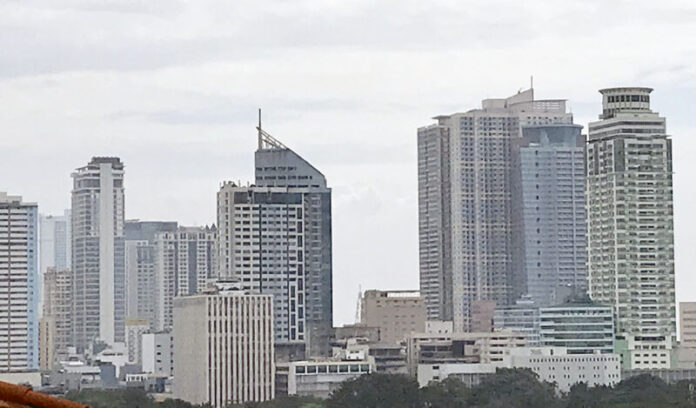-
The Development Budget Coordination Committee stuck to its forecasts of 6–7% Philippine economic growth in 2023 and 6.5–8% expansion for 2024-2028, after factoring in both domestic and external risks
-
DBCC’s projections took into account risks posed by El Niño and other natural disasters, global trade tensions, and value chain disruptions
-
The committee revised downward its growth projections for goods exports and imports this year to 1% and 2%, from 3% and 4%, respectively
-
The national government is preparing a proposed P5.768 trillion national budget for 2024, which is 9.5% larger than this year’s outlay
The Development Budget Coordination Committee (DBCC) has maintained its target of 6–7% economic growth in 2023 and 6.5–8% expansion in 2024–2028 after taking into account domestic and external risks.
“These projections have already taken into account the risks posed by El Niño and other natural disasters, global trade tensions, and value chain disruptions, among other factors,” DBCC said in a statement after reviewing recently the government’s medium-term macroeconomic assumptions, fiscal program, and growth targets for 2023–2028.
The committee expressed confidence that the country can withstand these risks and achieve upper-middle-income status in the next two years by implementing near- and medium-term strategies, such as ensuring timely and adequate importation, taking preemptive measures against El Niño, strengthening biosecurity, enhancing agricultural productivity, and pushing for legislative reforms including the Livestock, Poultry, and Dairy Competitiveness and Development Act, among others.
The committee also noted that the economy expanded 6.4% in the first quarter of 2023, making the Philippines one of the best-performing economies in the Asia Pacific.
DBCC, however, has revised downward its growth projections for goods exports and imports. For this year, the committee downgraded its exports and imports growth assumptions to 1% and 2%, from 3% and 4%, respectively, following the trend in the near-term global demand outlook and trade prospects. These are expected to stabilize at 6% for exports and 8% for imports in the medium term.
The average inflation rate assumption for 2023 has been narrowed to 5–6% from the previous assumption range of 5–7% partly due to a consistent slowdown in inflation over the past four months.
The inflation rate is expected to return to the target range of 2% to 4% by 2024 and 2028 as the administration, through the Inter-Agency Committee on Inflation and Market Outlook, provides proactive measures to address the primary drivers of inflation.
The DBCC maintained its assumption of US$70 to $90 per barrel for the price of Dubai crude oil for 2023–2024, that will stabilize to $60 to $80 per barrel in 2025–2028 as the latest futures prices and forecasts still suggest falling global crude oil prices over the medium term.
The committee also narrowed down its peso-dollar exchange rate assumption for 2023 to P54 to P57 to $1 and expected the rate to be broadly stable at P53-P57 for the remainder of the medium term. The peso will continue to be supported by structural foreign exchange inflows and ample international reserves.
The national government is preparing the proposed national budget for 2024 that amount to P5.768 trillion, 9.5% greater than this year’s budget.
DBCC said the proposed national budget will continue to prioritize expenditure items that promote social and economic transformation through infrastructure development, food security, digital transformation, and human capital development.
Acknowledging the competing demands of government programs against a backdrop of limited resources, DBCC said the committee will ensure that the 2024 National Expenditure Program will only include implementation-ready agency proposals.
DBCC primarily reviews and approves the macroeconomic targets, revenue projections, borrowing level, aggregate budget level and expenditure priorities, and recommends to the Cabinet and the President the consolidated public sector financial position and the national government fiscal program.
RELATED READ: DBCC keeps 2023 GDP growth target, ups inflation expectations





